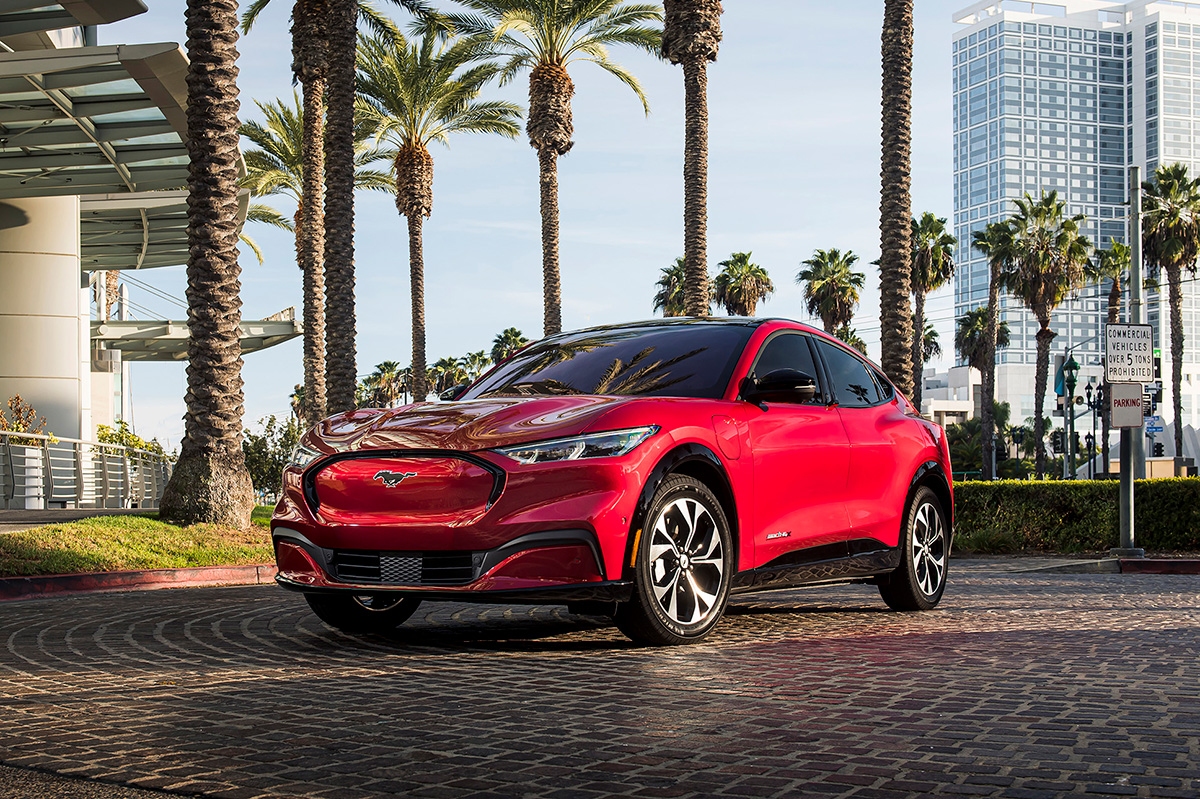Living
Myths of estate planning
Think your family can’t contest your will? Think again

 This is the fifth in a series of seven articles to help you understand what you do know, don’t know and should know about estate planning.
This is the fifth in a series of seven articles to help you understand what you do know, don’t know and should know about estate planning.
Unfriendly family members don’t lose their power to make trouble for you when you die. They can – and sometimes do – contest the terms of a will that doesn’t satisfy them. Unfortunately, that possibility is more likely in the case of same-sex couples, when some relatives may have highly charged opinions about the legitimacy of your relationship. Too often, I’ve seen that even “neutral” relatives show their true (disapproving) natures when an estate comes into play. You can’t stop a vehement parent, sibling or other family member from challenging estate planning documents, but you can take steps to be sure your estate plan is as bullet-proof as possible.
1. Make sure that your will is current (within the last five years) and that it reflects all of your current family situations. A will that refers to people who are long dead can create problems. Bigger problems arise from wills that are ambiguous. The best wills have very clear directions relating to the people that are intended to be included as well as those that have been deliberately left out, and exactly what they get or don’t get. The more clearly your intentions are laid out, the harder they are to challenge.
2. Include a “no-contest” clause in your will. This, when done properly, is a series of provisions meant to discourage people from challenging your will or trust, by authorizing your executors to defend those challenges and by attempting to penalize anyone who files a challenge anyway. These clauses tend to work best against people who have been left some money, but less than they think they were entitled to because it may result in them getting nothing at all.
3. Keep copies of any wills that you signed a few years apart from each other, but which are all similar is another way. If the most current will is successfully challenged, the one before it may still stand. That’s the reason that we frequently encourage clients to retain old documents that were valid at the time they were signed.
4. Document your competence, as well as the lack of undue influence upon you by other people, at the time that your will is being signed. Wills require multiple witnesses for that reason. The potential problem is that, if someone challenges the will years later, the witnesses may not be available. I prefer to video the will-signing session as additional proof that the signers were competent to make the decisions they did and did it of their own free will.
The best strategy for preventing problems before they occur is telling people in your family what’s in your will, at least in general terms, and about how they have been treated or not treated. The biggest problems arise when people who are not out to their family die, leaving significant assets to a partner or spouse. Being outed by your estate planning documents is a surefire way to create problems.
It all boils down to a simple rule: Hope for the best behavior from family members who survive you – but prepare for the worst.
Larry Jacobs has helped hundreds of same-sex couples and LGBT singles in the Washington area protect their assets and loved ones through partnership planning. He is a partner at McMillan Metro, P.C. and has practiced law for 41 years. Learn more about his practice at www.PartnerPlanning.com. This column is not intended to provide legal advice, but only general guidance that may or may not be applicable to your specific situation.
Real Estate
Find a way to participate in the sharing economy
Earn extra cash by walking dogs, renting your car, and more

If you could turn back time, would you find a way to participate in the sharing economy? If you own a home, a car, or have other resources or skills, you may still be able to. So don’t fret, SNAP OUT OF IT! (Anyone getting the Cher references so far?)
Recently, companies like AirBnB, VRBO, Uber, Lyft, Couchsurfing, Upwork, TaskRabbit, LendingClub, Poshmark, Meowtel, Rover, and Neighborgoods (among others) are allowing people to share their resources. Goods and services such as cars, money, homes, couches, clothing, business skills, tech or maintenance, design, dog walking, financial and accounting help, graphic design, among other skills can be shared with others for a price. People are finding ways to use the underutilized resources of their time, possessions and knowledge to make extra money, pay down debt, pay off bills, finance vacations, or just pay for those expensive eggs.
For homeowners, these resources can help offset the costs of owning and financing a home or allow the bandwidth to finally take that three months abroad or six-month sabbatical they have been desiring. As with any investment of time or resources, you will have to assume some risk. If you are renting out your car or home, there will be wear and tear. If you are lending money, there is a risk of it not being returned. If you are selling gently used clothing online, the item could be returned, or the payment does not go through. These are risks one must take into consideration when starting any new enterprise. But as they say, without any risk, there can be no reward.
The sharing economy is based around peer-to-peer transactions. There is renewed emphasis on having experiences, less societal pressure for consumption, and embracing the access to experiences via online platforms. It’s not uncommon for many urban dwellers to own only one car, or not even own a car due to the access one has via the sharing economy. Vacations can be afforded via the peer-to-peer networks where a group of five people can stay in a luxurious setting at a favorite getaway destination for a fraction of the cost of a hotel and all meals out.
When one decides to venture into offering their home or car for these types of transactions, a wise tip to remember is that this is still operating a business. Customer service matters. Cleanliness, prompt attention and communication are key. It will require knowledge toward budgeting, setting competitive prices, creating memorable customer experiences, listening to constructive feedback, and using those customer service skills we all expect to see when we are dining out, staying at a hotel, or flying an airline.
If you would like to learn more about how to leverage your own resources to up your monthly income or free up your schedule, please don’t hesitate to reach out. I offer affordable seminars in creative thinking and digital marketing, to help people make use of their spare time, resources and energy.
Joseph Hudson is a referral agent with Metro Referrals. Reach him at 703-587-0597 or [email protected].

Looking to roll into something new? With all the buzz about 25% tariffs, it’s the perfect time to grab a new ride before prices soar—especially for electric vehicles, which may soon wave goodbye to those oh-so-attractive federal tax credits. Whether you are an eco-conscious commuter or just need a chariot for weekend getaways, these three green machines offer some serious swagger.
FORD MUSTANG MACH-E PREMIUM
$42,000
Range: 250-300 miles (depending on battery pack)
0 to 60 mph: 5.2 seconds
Cargo space: 29.7 cu. ft.
PROS: Zippy. Sporty feel. Ample battery range.
CONS: Bit bumpy over potholes. Limited seat adjustments.
IN A NUTSHELL: With sleek curves and a design that’s hotter than a drag queen’s heels on the runway, the Ford Mustang Mach-E blends both power and flair. The exterior colors are vibrant and unapologetically bold, just like the rainbow after a storm. Three trim levels, but opt for the spiffy Premium version—which was what I drove and is a nice step up from the $37,000 base model. It also costs a lot less than the gutsy GT, which tops $55,000.
Inside, the Mach-E is like driving a chic lounge on wheels. Toggling through the 15.5-inch touchscreen feels like navigating through the latest TikTok trends. A panoramic glass roof and faux-leather upholstery come standard, but assorted add-ons—standard features with the Premium trim—include hands-free power liftgate, multicolor ambient lighting and 10-speaker Bang & Olufsen stereo. There’s also plenty of space for all the essentials: totes, coats and besties.
And let’s not forget about battery range—there’s enough juice here to take you through a whole day of driving without needing a recharge. With Ford’s fast-charging network, it’s easy to be powered up quicker than you can say, “Ride ‘em, cowboy!” Well, almost.
How popular is this EV, which looks more like a hot hatchback than an SUV? Last year, sales spiked 27% and outsold the iconic gas-powered Mustang. So yes, the Mach-E Premium isn’t just any vehicle—it’s an experience that’s, well, electric.
KIA SPORTAGE PHEV X-LINE PRESTIGE
$44,000
MPGe: 84 city/highway combined
0 to 60 mph: 7.1 seconds
Cargo space: 39.6 cu. ft.
PROS: Comfy. Comely cabin. Oodles of passenger room.
CONS: Clunky dual-use dashboard controls. Bit noisy interior.
IN A NUTSHELL: Next up: the 2025 Kia Sportage PHEV X-Line Prestige, a compact plug-in hybrid that combines style, strength and versatility into one dazzling package. If the Mach-E Premium is a glam EV star, I found the Sportage PHEV to be an SUV showstopper.
Under the hood, power comes from an electric motor and gas-powered backup, so you get the best of both worlds—whether cruising on green energy or unleashing your inner diva. The all-electric range is almost 35 miles, and all-wheel drive is standard—which helps keep things steady, no matter the weather.
Inside, it’s pure comfort. While there are two hybrid trim levels, even the base-model—the X-Line—is fairly loaded: LED headlights/taillights, dual-zone automatic climate control, remote start, power liftgate, nav system, wireless charging pad, smartphone integration and more.
For my weeklong test vehicle, I was spoiled with the X-Line Prestige, which is full of a ridiculous number of amenities and safety gear. Let’s just say the clever cabin design would make the folks at Ferrari blush. Oh, and thanks to the pristine acoustics from the Harmon Kardon audio, I could have sworn the cast of “Hamilton” was right there with me belting out each tune. “Blow Us All Away,” indeed.
MERCEDES AMG C 63 S E
$87,000
MPGe: 40 city/highway combined
0 to 60 mph: 3.3 seconds
Cargo space: 11.6 cu. ft.
PROS: Snazzy. Lightning fast. Haute handling.
CONS: Pricey. Quirky steering-wheel controls.
IN A NUTSHELL: Jonesing for an exciting, eco-friendly sedan? Then look no further than the Mercedes AMG C 63 S E plug-in hybrid, which gets the adrenaline pumping each time you slip behind the wheel.
Under the hood, there’s a staggering 671 horsepower—enough to leave competitors in the dust and make them more than a little jealous. This AMG-tuned Mercedes—the quickest C-Class ever—blasts from 0 to 60 mph in just 3.3 seconds, faster than your heart rate when seeing your next crush at a circuit party. And that’s not even the best part—the shapely contours of this sportster are as chiseled as Luke Evans’ check bones.
Inside, the cockpit is like a designer outfit made for a fab night out—high-quality material everywhere, as well as branded sport seats with top-tier upholstery and stitching. One downside: the steering-wheel controls, which look tasteful but can be a tad too touch-sensitive at times.
Still, this elegant ride exudes more than enough bells and whistles to maintain a constant state of euphoria.

For LGBTQ couples, homeownership represents more than just a financial investment — it is a statement of stability, security, and equality. However, navigating the home-buying process can present unique legal and financial challenges. Whether you are buying your first home together or upgrading to your dream house, understanding your rights, responsibilities, and potential pitfalls is essential.
Here’s what LGBTQ couples need to know when purchasing a home in 2025.
Legal Considerations: How Should You Hold Title?
One of the most crucial decisions LGBTQ+ couples face when buying a home is how to hold title, as this impacts legal rights, inheritance, and financial obligations. Here are the three main options:
- Joint Tenancy with Right of Survivorship – Both partners own the property equally, and if one passes away, the other automatically inherits full ownership.
- Tenants in Common – Each partner owns a percentage of the property (e.g., 50/50 or 70/30). If one partner dies, their share goes to their estate, instead of automatically transferring to the surviving partner.
- Sole Ownership – If only one person is on the title, they hold full legal ownership. This may be beneficial for credit or financing reasons, but it leaves the non-owner partner vulnerable.
LGBTQ+ couples should have a conversation with their gay real estate agent, and/or consult a real estate attorney to determine the best ownership structure based on their relationship and long-term goals.
Financing: Getting Approved for a Mortgage
While same-sex marriage is legally recognized in the U.S., LGBTQ+ couples still experience higher rates of mortgage denials than their heterosexual counterparts. Here’s how to strengthen your loan application:
- Check Your Credit Scores – Both applicants should review their credit reports and address any discrepancies before applying.
- Compare Lenders – Some mortgage lenders are more LGBTQ+-friendly than others. Ask for a referral from your LGBTQ+ real estate professional.
- Consider a Joint or Individual Application – If one partner has significantly better credit or a higher income, it might be beneficial to apply individually for a more favorable interest rate.
Work with an LGBTQ+-friendly lender who understands your financial needs and ensures fair treatment.
Protecting Your Property and Rights
Even if you are legally married, it may be wise to put additional protections in place to avoid potential legal or financial disputes down the road:
- Co-Ownership Agreement – If you are not married or want to clarify ownership percentages, a co-ownership agreement outlines each person’s rights and responsibilities.
- Estate Planning – LGBTQ+ couples should have a will or trust to specify what happens to the property in the event of death. Even with joint tenancy, a will can clarify intentions and prevent family disputes.
- Power of Attorney – In case of emergency, granting each other power of attorney ensures that one partner can make legal or financial decisions on behalf of the other.
Estate planning is not just for the wealthy – having legal documents in place protects your home and loved ones.
Finding an LGBTQ+-Friendly Real Estate Agent
Working with a real estate professional who understands the needs of LGBTQ+ homebuyers can make the process much smoother. Here’s how to find the right agent:
- Look for Experience – Seek agents who specialize in working with LGBTQ+ clients and have knowledge of local housing protections.
- Avoid Discrimination – While the Fair Housing Act prohibits discrimination based on sex (interpreted to include sexual orientation and gender identity), biases still exist. Choose an agent who prioritizes inclusivity and fairness.
- Use LGBTQ+ Real Estate Networks – The best way to find a trusted LGBTQ+-friendly real estate agent is through GayRealEstate.com, the Nation’s Oldest and Largest Free Database of LGBTQ+ Real Estate Agents Worldwide. Since its founding, GayRealEstate.com has helped thousands of LGBTQ+ buyers and sellers connect with agents who are not only professional and experienced, but also 100% committed to equality and inclusivity.
Using an agent from GayRealEstate.com ensures that you are working with someone who values fairness, understands LGBTQ+ housing concerns, and is dedicated to finding you the perfect home in a welcoming community.
Choosing an LGBTQ+-Friendly Neighborhood
Finding a home is about more than just the property itself – it is about the community. Consider these factors when searching for the perfect neighborhood:
- LGBTQ+ Inclusivity – Look for cities with nondiscrimination laws, pride events, and visible LGBTQ+ communities.
- Safety – Research crime rates and local laws to ensure your new neighborhood is a safe and welcoming environment.
- Community Support – Some cities have LGBTQ+ resource centers, social groups, and advocacy organizations that make settling in easier.
Tools like the Human Rights Campaign’s Municipal Equality Index rank cities based on LGBTQ+ inclusivity and protections.
Homeownership is an Empowering Step
Buying a home as an LGBTQ+ couple is a milestone worth celebrating. While challenges still exist, being informed and proactive can help you avoid pitfalls, protect your rights, and make smart financial decisions. By working with LGBTQ+-friendly professionals, understanding your legal options, and securing financial protections, you will set yourself up for long-term success and stability.
Whether you are buying your first home or upgrading to your forever house, the key is to be prepared, protected, and empowered throughout the process.
Jeff Hammerberg and Scott Helms are with GayRealEstate.com, the nation’s leading online platform connecting LGBTQ homebuyers and sellers with LGBTQ-friendly real estate agents, ensuring a safe and supportive experience. To find an agent or learn more, visit GayRealEstate.com or call 1-888-420-MOVE.
-

 Movies1 day ago
Movies1 day agoSexy small town secrets surface in twisty French ‘Misericordia’
-

 Federal Government2 days ago
Federal Government2 days agoMass HHS layoffs include HIV/AIDS prevention, policy teams
-

 Maryland3 days ago
Maryland3 days agoAt transgender visibility celebration, Moore called out for lack of action
-

 Arts & Entertainment3 days ago
Arts & Entertainment3 days ago‘Think of those who have not been seen,’ Cynthia Erivo’s powerful message at GLAAD Awards












